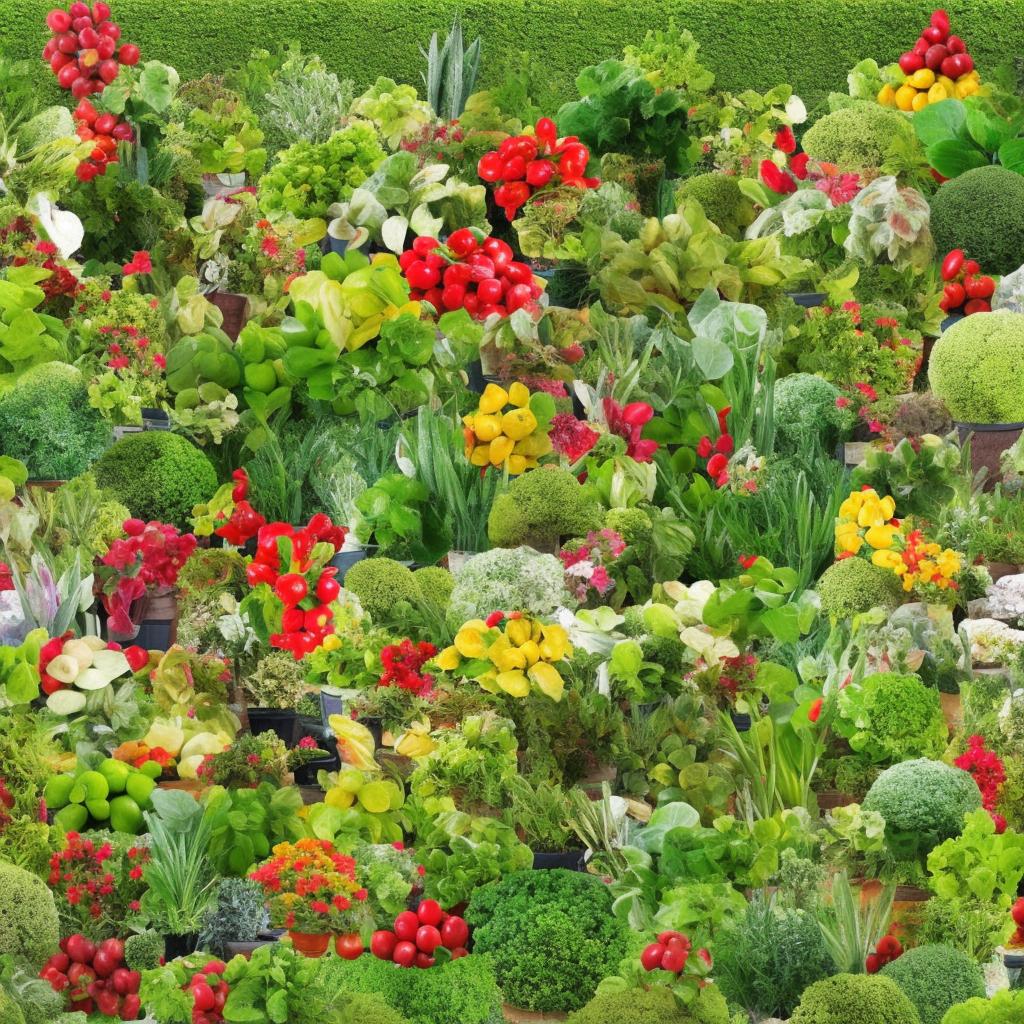In our fast-paced world, it’s easy to forget the importance of sustainable practices, especially when it comes to something as seemingly simple as gardening. However, embracing sustainable gardening practices is not only beneficial for our own well-being but also crucial for the health of our planet. In this article, we will explore ways in which you can cultivate a greener world through sustainable gardening practices. Let’s dig in and discover how we can make a positive impact on the environment one plant at a time.
Creating a Biodiverse Garden Ecosystem
In order to create a biodiverse garden ecosystem, it is important to utilize sustainable gardening practices that not only benefit the environment but also contribute to a greener world. One way to achieve this is by planting a variety of native plants that attract beneficial insects, birds, and other wildlife. By creating habitats for these creatures, you can help maintain a healthy balance within your garden ecosystem.
Additionally, incorporating organic gardening methods such as composting and mulching can help improve soil health and fertility, which in turn supports the growth of a diverse range of plant species. Avoiding the use of chemical pesticides and herbicides is also crucial in maintaining a harmonious garden ecosystem. By opting for natural alternatives like neem oil or introducing predatory insects, you can effectively manage pests without harming the environment.
Implementing Water Conservation Techniques
One effective way to conserve water in your garden is by utilizing drip irrigation systems. These systems deliver water directly to the base of plants, reducing evaporation and runoff. By installing a drip irrigation system, you can ensure that your plants receive the water they need while minimizing water waste.
Another water conservation technique to implement in your garden is mulching. Mulch helps to retain moisture in the soil, reducing the need for frequent watering. Additionally, mulch can help to suppress weeds, regulate soil temperature, and improve overall soil health. Consider using organic materials such as shredded bark, straw, or compost as mulch in your garden.
Utilizing Organic Pest Control Methods
One of the most effective ways to maintain a healthy garden while promoting environmental sustainability is by utilizing organic pest control methods. By steering clear of harmful chemicals and pesticides, you can protect beneficial insects and organisms while keeping your plants healthy and thriving. For example, introducing natural predators like ladybugs or lacewings can help control populations of harmful pests without causing harm to other wildlife.
Another great approach to pest control is using companion planting. By strategically pairing certain plants together, you can naturally repel pests and attract beneficial insects. Plants like marigolds, basil, and mint are known for their pest-repelling properties, while flowers like lavender and daisies can attract pollinators that help keep your garden in balance. Embracing these sustainable gardening practices not only benefits your plants but also contributes to a greener and healthier world for all.
Promoting Soil Health through Composting
Composting is a simple yet effective way to promote soil health and enhance the overall sustainability of your garden. By recycling organic waste materials such as kitchen scraps, yard trimmings, and paper products, you can create nutrient-rich compost that will help improve soil structure, fertility, and moisture retention. This natural fertilizer is a great alternative to chemical-based products, reducing the need for synthetic inputs that can harm the environment.
Not only does composting benefit your garden, but it also contributes to a greener world by reducing waste sent to landfills and cutting down on greenhouse gas emissions. By incorporating compost into your gardening practices, you are not only nurturing your plants but also taking an active step towards promoting sustainability and environmental stewardship. Join the composting movement today and make a positive impact on the health of our planet!
The Way Forward
In conclusion, sustainable gardening practices hold the key to creating a greener and more harmonious world. By incorporating eco-friendly techniques and mindfully tending to our garden spaces, we can not only benefit the environment but also nurture our own well-being. Let us embrace the beauty of nature and tread lightly upon the earth, one plant at a time. Together, we can make a difference and cultivate a future where all living beings can thrive. Remember, the seeds of sustainability start in our own backyards. Let’s make them bloom, for a brighter tomorrow.




